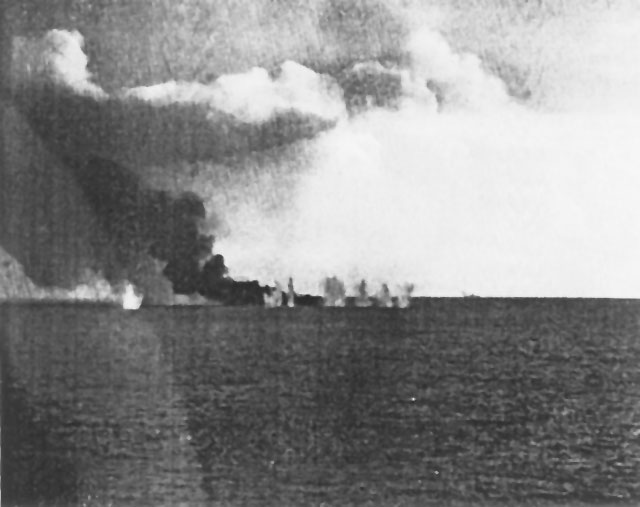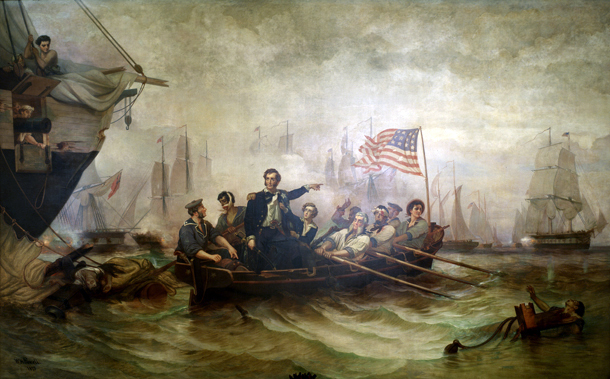no shit genius.
i had literally never said things like supply dont matter.
i asked why you bring up individual battles, as important as they may be, when the article talks about war.
yes you can win individual battles, important ones even, the article also said, larger navies are also able to take more attrition.
its really pretty simply isnt it? given roughly the same tech level, skill and competence, it would be lucky to sink 10 enemy ships to your 2, but if you only have 5 ships and the enemy 200, you would
need to be lucky many times and they only have to be lucky a couple times.
if you want to argue the us has allies, or better tech or basing or experience, those would be fine points, but that's not what you pointed out.
and Ukraine? not a naval war. and last i check Ukraine isnt winning, yes they stopped russia from taking over eastern Ukraine...so far, but not a single Ukrainian soldier is in russia nor are they even pushing russia back now and the war isnt over. expanding the draft to 60 year olds on your 10th round and the enemy is still in your country with no signs of backing off, with news of your backers getting tired of supporting you and youre not even pushing the russians back anymore is not my idea of winning. the russian black sea fleet has no naval enemies it can combat and got sniped at by Ukrainians...from land. the chinese also stopped the us led un in korea in 1950, took pot shots are various us naval craft too, but no one in their right mind would call that a naval war and use it to say the chinese with barely a navy, unused in the war, is somehow winning over the usn.
and congrats on studying war, so what? the article made a simple point, larger navies win naval wars more than not in past history. so with all your studies, are you going to disagree with that, that larger navies won more naval wars historically? and i made an even simpler point, the article is talking about wars not battles. are you going to disagree that the article said "war" not battles?
also i literal (again) never said more = better in general. I literally said tech and such counts otherwise people would be using sail boats for a navy. looks like you should study what i wrote more carefully, instead of putting words in my mouth.
No, I don't even mean that.
Let me give you an example. You have 50 ships, your enemy have 100 ships, let say you are allow to fight 3 battles and that would decide the outcome of a war. How do you execute your battle plan?
Okay, screw Navy, am a Army guy, let's talk about in an area I am more familiar with. You have 50 Tanks, your enemy have 100 tanks. You are allow 3 battles and that would decide the outcome of a war, how do you execute your battle plan?
Would you apply that to a 1 on 1 fight, otherwise known as set piece and you completely engage your enemy head on, that's your assumption because if we do that, you are going to lose, because like you said, given the same tech, given the same efficiency, 100 tanks is easier to kill 50 tanks. But is this the only way? No.
In Strategic planning, there is a thing called Defeat in Detail. Which is what the German did to Roman back in Teutoburg forest in 9AD. Essentially Roman have 3 Legions and a few allied cohort come up against loose Germanic Troop that number less than 15000 in the Northern Expansion campaign. By all account Roman should have won, you are talking about 10,000 more trained troop than the German Tribe. But no. What the German did is they virtually dangle some of their own troop, fast scout, and set into a few pieces of losing skirmishes. First, that give the Roman a false sense of security thinking this is going to be easy, but more importantly, the German did that to just make one thing out. That's to separate the 3 legions.
Once that 3 legion is no longer mutually supporting each other, you are instead of getting one single 25000 force, you are talking about 3 x 8000 sized force, that would be a problem because you will have to pass thru the Forrest (hence the name) to fight a set piece, and you are taking hit left and right going into the forest and when you come out, you are less of a force you went in, and also disorganised, and now you are facing the 10,000 or so German in 3 block of anything less than 8000. That's how Roman lose that battle, and the entire campaign of Northern Expansion. That's 3. battle help controlling the Roman, the German lose the first one to break up the Roman Formation, then attack the Roman when they traverse thru the Forest, and finally set up the last decisive battle toward the separated and disoriented Roman and win the war that way.
On the other hand, at Tactical Level, there are something called Oblique Flank, unit aren't create equal, a Destroyer have different capability than a cruiser, than a carrier than a frigate and so on, The concept of Oblique Flank is to stack one of your flank with the most massive firepower as possible and corrode that flank and leave the weaker unit to buy time on the other side. It was used in the war in Ukraine, when they left 3 Brigade Behind to defend Mariupol and reinforce both Kyiv and Kharkiv, if the Ukrainian try to hold on to all 3 cities and applies their troop equally, they will lose all 3, and most likely the war. This would have an impact on Strategic Level because unit size does not define a defensive operation, but rather it is factor like how you hold on to the defensive line and how you blunt the enemy attacks. That is what we call "Defensive/Offensive Mechanic" You have a push-pull style mechanic where you stack up against one flank and that would pull the dynamic toward that, and thus pulling the center of gravity of defence toward it. In Ukrainian war case, it's Kyiv at the early stage of the war.
On a side note, YOU are arguing number matter, which mean Ukrainian example applies even the war had not yet over, because if number do matter, how or why Russia did not win the war by sheer number of Tanks, Troops, Aircraft and ship already?
And finally the Operational Level, as I explained before, it really didn't matter much how many troop you've got, it always matter HOW MANY YOU CAN SEND TO THE FRONTLINE and support it, and it's not just about logistic. A very good Air Force example my brother use (He was USMC flyer) and probably
@gambit have heard about it is. It didn't matter how many bogey you are facing, there can always ONLY BE ONE at your six, that's the only one that count and that's the only one you need to care about. That also applies to Naval Battle and Ground Warfare.
For example, During D-Day in Normandy, you can only have a number of ship supporting the beachhead or it would have been too crowded. Your gunnery lane are going to cross, so you aren't going to fire at something without hitting your own people, simply because the entire beachhead is littered with your troop, your ship and so on. Another factor is larger ship cannot be closer to shore, which mean their land attack capability are neglectable and in case of shore party duty, I don't care if you stack 30 Aircraft Carrier and 50 Cruiser along the entire English Channel, it's ALWAYS only the destroyer close to the shore that counts, for the ground troop that landed in the beaches, those Aircraft Carrier and Crusier or whatever is not really a point. Becuase those asset CANNOT be brought to bear in that circumstance.
This is the Tactical-Strategical-Operational dynamic I am talking about, I doubt you understand any of this and just come back and say "You should have say US have allies"......Well, at least I tried.










